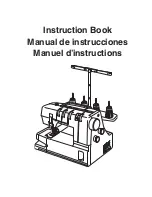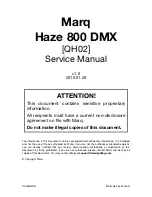
18
CHOOSING AND USING THE BRUSHES
POLYPROPYLENE BRUSH (PPL)
Used on all types of floors. Good resistance to wear and tear, and hot water (no greater than 60°C). The Polypropylene brush is non-hygroscopic and
therefore retains its characteristics even when working in wet conditions.
NYLON BRUSH
Used on all types of floors. Excellent resistance to wear and tear, and hot water (even over 60°C). The nylon is hygroscopic and so tends to lose its
characteristics over time when working in wet conditions.
ABRASIVE BRUSH
The bristles of this type of brush are charged with highly aggressive abrasives. It is used to clean very dirty floors. To avoid floor damage, work only with the
pressure strictly necessary.
THICKNESS OF THE BRISTLES
Thicker bristles are more rigid and are therefore used on smooth floors or floors with small joints.
On uneven floors or those with deep joints, it is advisable to use softer bristles which can enter the gaps more easily.
Remember that when the bristles are worn and therefore too short, they will become rigid and are no longer able to penetrate and clean deep down. In this
case, like with overlarge bristles, the brush tends to jump.
PAD HOLDER
The pad holder is recommended for cleaning shiny surfaces.
There are two types of pad holder:
1.
the traditional pad holder is fitted with a series of anchor points that allow the abrasive floor pad to be held and dragged while working
2.
the CENTRE LOCK type pad holder not only has anchor points, but also a snap-type central locking system in plastic that allows the abrasive floor
pad to be perfectly centred and held without any risk of it becoming detached. This type of dragging device is recommended above all for machines
with more than one brush, where the centring of the abrasive discs is difficult.
TABLE FOR CHOOSING THE BRUSHES
Machine
No. of brushes
Code
Type of bristles
∅
Bristle
s
∅
Brush
Length
Notes
CM1817 1
405540
405534
405653
-
-
PPL
-
-
0.7
430
430
420
-
PAD HOLDER
PAD HOLDER
BRUSH
CM4017 1 405539
-
-
420
-
PAD
HOLDER
CM17 DS
1
405539
405653
-
PPL
-
-
420 -
PAD HOLDER
BRUSH




































